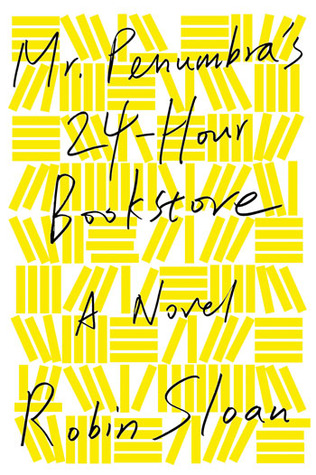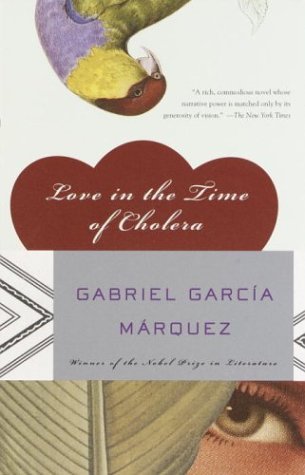Looking over the reviews on Goodreads as I prepare to post this review, I wonder what my problem is. Why didn't I get spine-tingles on the final page? I am forever in pursuit of that 16-again feeling that the best stories can give you. Have I lost that and become a victim of my own snarky reviewer's inner monologue?
I honestly don't know.
I see what Robin Sloan is trying to do. He's trying to write a clever, self-referential, nerdtastic ode to books and stories.
A noble pursuit.
And it is self-referential. But it's just not as clever as it thinks it is. As for nerdtastic, this nerd was somewhat unimpressed.
It's narrator, whose name I truly cannot think of without returning to the novel (Jenner? Jad? Clay? Yes, that's it, Clay), is your friendly San Franciscan Every-manchild, of indeterminate-but-aggressively-under-thirty age, who having lost his job as a graphic designer at a startup called NewBagel (OneWord) comes to make his living in the eponymous bookstore and has an army in implausibly well-connected and well-funded friends.
But, you may be asking, where is the Manic Pixie Dreamgirl? Don't you worry, my hipster friends, Kat the Hot Smart Programmer Chick enters about sixty pages in. As Clenner/Jay/Clad explains to Hot Smart Programmer Chick about his unusual participation in the secret society run out of Penumbra's dusty shop, she replies:
"That's amazing...Google's like a baby compared to that."
And Clay understands that she's even more of a dream girl than he first thought:
That explains it: this girl is a Googler. So she really is a genius. Also, one of her teeth is chipped in a cute way.
Aw. How cute.
Thank God an Average-looking Smart Programmer Chick didn't wander in. The story would never have gotten off the ground.
Kat, btw, is also the only female character of note in this story. A few others make cameos, but they are tokens.
Anyway, a pseudo-mystery plot ensues where Jlad and Kitty Kat pursue some mildly-engaging secrets, meanwhile creating a marriage of true minds between Google and a whole bunch of very dusty books. It's entertaining. But the whole time I just couldn't shake the feeling that in its clever, self-referential tone it believed itself to share a kind of intertextuality with a whole genre of books that are completely out of its league.
Sloan's point is fairly transparent: Books and technology aren't in opposition! They can work together! Sometimes people who read books know even MORE!
But unfortunately what happens is that Sloan undermines his own point. Because when he's trying to invoke Tolkien, Lewis, and even Borges, he's also writing sentences like this:
This is Mat's secret weapon, his passport, his get-out-of-jail-free car: Mat makes things that are beautiful.
And this:
Nobody's looking. I hoist the X high like a mythic sword.
In a book intended for smart people, there is a shocking dearth of complex sentence structure and interesting diction, original writing replaced instead with lists of cliches striving to sound climactic and similes that sound like they're trying to appease childhood readers of T. H. White but don't even come close.
And so Sloan goes on to do what I find that digital apologists-via-print do altogether too often: he oversimplifies. In trying to be clever, his narrator's voice just feels cute and immature. And the solution to his puzzle falls easily out of the sky, funded by his best friend from sixth grade who is now rich because...wait for it: he owns the world's best digital boob creation program.
Because the latent misogyny and female tokenism weren't enough.
I wanted to love this book. I wanted it to be smarter and fresher and more daring. I agree that books and technology aren't in opposition. But Penumbra argues against itself in its derivative simplicity.
You'd be better off picking up Tolkien again if you ask me.
Friday, June 20, 2014
Wednesday, June 11, 2014
Love in the Time of Cholera
Reading this book was a struggle. I've tried twice before, and failed to get past the first forty pages.
I'm glad that I read it.
But reading it felt a bit like I imagine it feels for people who don't like to read, to read.
The sumptuous prose, the sensual Colombian culture, the hyperbolic, almost mythic characters -- you've heard about it before. And even after much reflection, I still can't put my finger on why I don't love this book. It is, undeniably, a masterpiece.
I certainly appreciate it.
I understand why people love it. But I don't. I'd love to hear from people who do love it about what it means to them.
I will say, though, that this book moved me. In really rather painful ways. So I guess that might be part of it.
I think this is a novel about the ravages of passionate longing and the redemptive possibilities that remain in that longing even as it ravages. Its spurned lover, Florentino Ariza, who spends his life in affairs with woman after woman whom he cannot love from beneath the shadow of his adored Fermina Daza, becomes the mythic, and yet somehow simultaneously pathetic, champion of the kind of love that is so consuming, so controlling, so paralyzing, that it can be mistaken for cholera.
Their story is about the costs of idealizing the sharp passion of young love and the pain of remembering the past and the times when you were happiest:
Despite the perpetual rain, the sordid merchants, and the Homeric vulgarity of its carriage drivers, she would always remember Paris as the most beautiful city in the world, not because of what it was or was not in reality, but because it was linked to the memory of her happiest years.
As Florentino watches from afar, Fermina lives married life through cycles of alternating rage and seeming wedded bliss. Nothing really makes sense in this story. And yet there is a certain kind of revelatory wisdom about human nature in the intense nonsense of its characters' foibles and indiscretions.
In the end, (spoiler alert!), Florentino Ariza is faithful to Fermina Daza, faithful through his myriad acts of unfaithfulness and her marriage and "fifty-three years, seven months, eleven days and nights," and Garcia Marquez does grant them their own kind of happily ever after, fetid and sweltering though it may be, as after a lifetime of longing, they finally drift eternally together down a river to La Dorada, unable, and yet also undesiring, to disembark because of the cholera flag the ship's captain has chosen to fly.
This book is by no means prescriptive for how we ought to love. But it is absolutely descriptive of the ways that we do love. The ways that what Garcia Marquez calls "intrepid love" has a life and will of its own, and the ways it can change us irrevocably and completely without our control.
Love in the Time of Cholera is worth it. But its not easy. And maybe that is precisely the point.
Subscribe to:
Comments (Atom)


